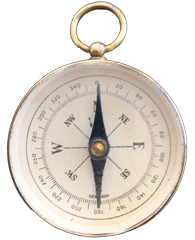Ashamed of America
I’ve never been proud to be an American, but at times, I’ve been proud of America.
It makes me proud whenever our country does something really humane. Several of these proud moments predate my birth. Lincoln’s “Emancipation Proclamation” is one of those moments. Another is the liberation of France from the Nazis. In my lifetime, two events stand out. The leadership of Martin Luther King, Jr. in the 1963 protests against American racism that led to the passing of the Civil Rights Act in 1964 is one. The other is more symbolic, when, in 1987, President Reagan shouted, “Mr. Gorbachev, tear down this wall!”
Now, March 1, 2025, I am ashamed to be an American. It’s one thing not to vote for a president one doesn’t trust. That’s an act of distancing. (Not my president, etc.) It’s another thing to see one’s citizenship mired publicly and perhaps permanently by that same president. Friday, February 28, 2025 marks a dark day in American history.
On that day, the world watched as the President and Vice President of the United States clumsily and at times irrationally spoke condescendingly to a man who towers above them.[1] What makes the meeting with Trump, Vance, and Zelenskyy abhorrent is the fact the Putin brazenly invaded the Ukraine—a fact that is overlooked while Trump and Vance speak with arrogance, disdain, and inaccuracy, putting blame on Zelenskyy:
[4:02 Vance] do you think that it’s respectful to come to the Oval Office of the United States of America and attack the administration that is trying to trying to prevent the destruction of your country…
[4:48 Trump] you’ve allowed yourself to be in a very bad position…you’re gambling with the lives of millions of people…
[5:13 Trump] what you’re doing is very disrespectful to the country, this country…
[5:23 Vance] have you said thank you once this entire meeting…?
Only the condescending, patronizing tone of Vance’s voice could place him lower than Trump in this dialogue. If a parent spoke to a child in Vance’s tone, I’d be outraged. The fact that he’s talking to a man with more courage and control than himself disgusts me (and many others). At minute 8:22, Trump speaks a truth he cannot realize: “because the attitudes have to change.” Those are words well said once directed to the American leadership. Perhaps worse than the televised meeting is the fact that Trump, without any historical accuracy, claims that Zelenskyy started the war.
The popular distinction between guilt and shame may apply here. Usually, it is confined to the personal counseling sessions. Guilt is doing the wrong thing. Shame is being the wrong person. Everybody and every country does the wrong thing—frequently. If guilt helps correct those actions, then it serves a purpose. If it doesn’t—if in this case a country is hell-bent on doing the wrong thing (such as siding with dictators)—it is becoming the wrong country. It is moving from a state of guilt to a state of shame.
One of my favorite passages in Shakespeare occurs in Measure for Measure. The brother has encouraged his sister to lose her chastity to save him from the death penalty. To some modern ears this may sound like a good negotiation. To Isabella, the idea is abhorrent. She responds, “Thy sin’s not accidental, but a trade.” Our country’s sin is not accidental, but a vocation. Everything is on the surface, too. There is no need for behind-the-door meetings because President Trump relentlessly proclaims that others are bad, weak, spineless, and nasty while implying that he knows and does best for the country, even if that means falsely claiming that an election has been stolen, watching tv for hours while the Capitol is being stormed, and turning the nation’s back on a democratic ally in support of one of the most obviously brutal dictators of Russia.
The last decision is the worst decision. Be a truly bad President. You and your league of sycophants will be removed from power within a decade. But turn your back on that thin line between Russian imperialism and a young (1991) democracy—rewriting history in the process…and you are using your country’s resources (that’s us, folks) shamefully.
There’s another line from Shakespeare that comes to mind when I think of successful people who do rotten things. Hamlet, stunned by a revelation of such evil, says it is important for him to write down, “That one may smile, and smile, and be a villain.” He adds “At least I am sure it may be so in Denmark.”
I add, at least I am sure it may be so in the United States of America.
§ Footnotes §
[1] Volodymyr Zelensky emerged as a hero three years ago when President Putin commanded the Russian invasion of Ukraine. This invasion, projected to take a matter of days, has been successfully thwarted for over three years. Russia, 143 million people. Ukraine, 37 million people. Were he in grade school, Putin would be told to pick on somebody his own size. In spite of being outnumbered and out-weaponed, Zelensky has not flinched.
The Wikipedia summary does Zelensky justice and is a good reminder of the past three years, including how Zelensky was offered safety by Turkey and the United States but turned down the offer.
As a footnote to a footnote, early in the war, I celebrated Zelensky as a bike rider in my Person versus Automobile web log.
